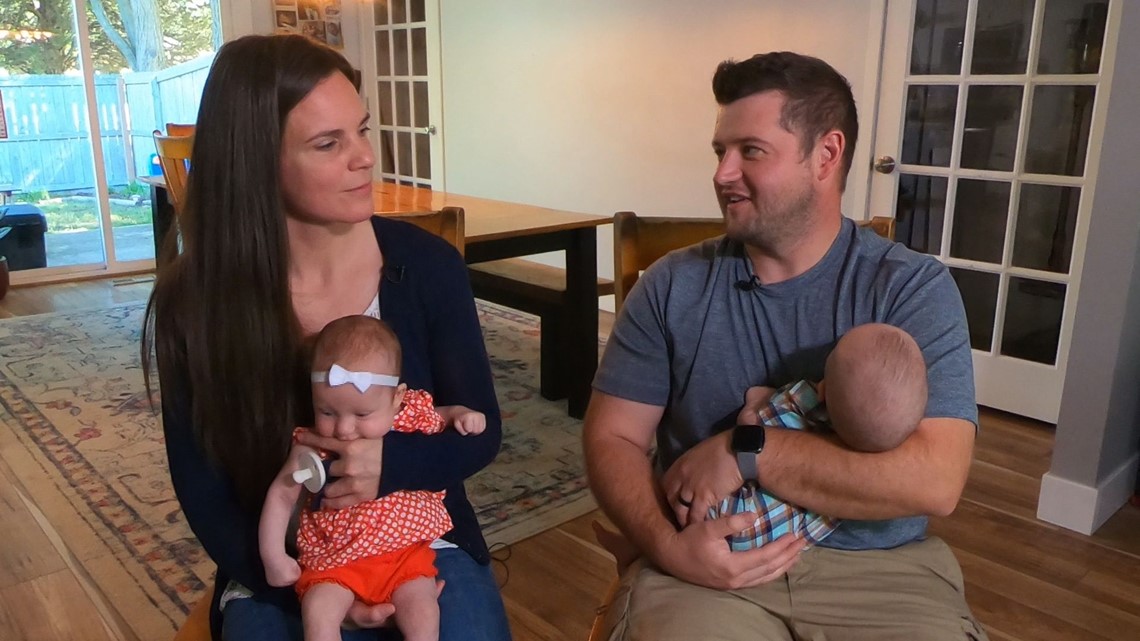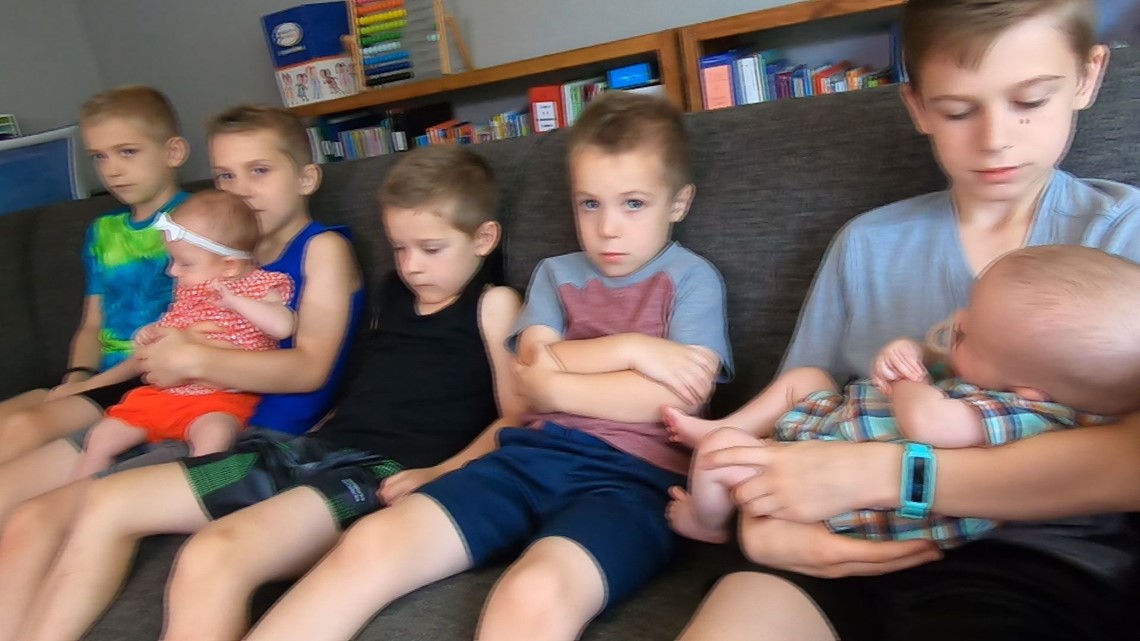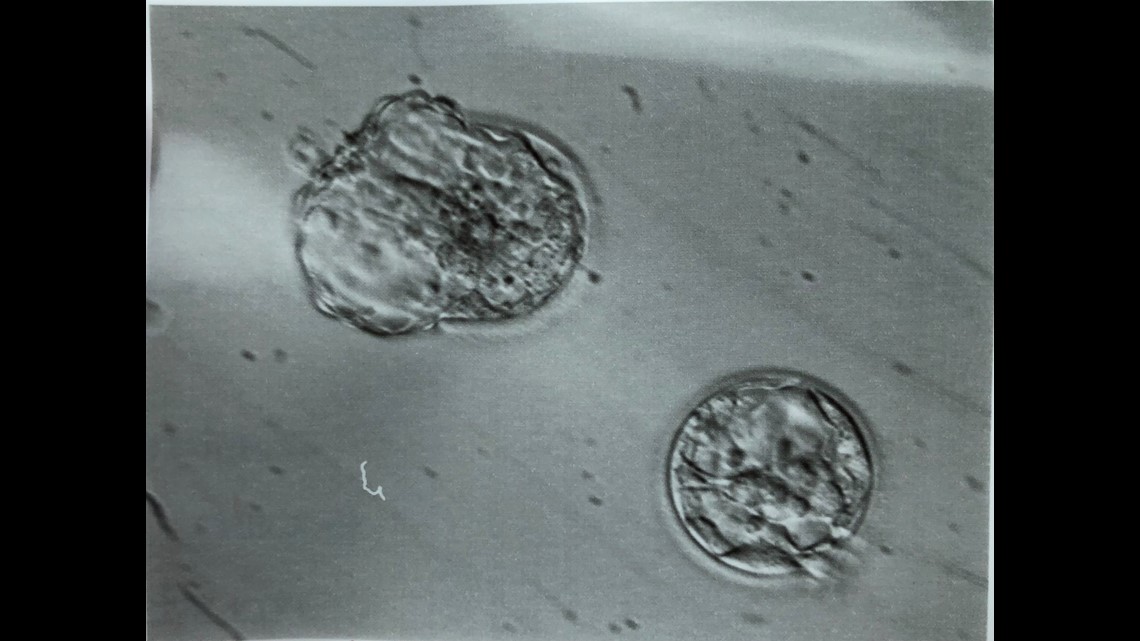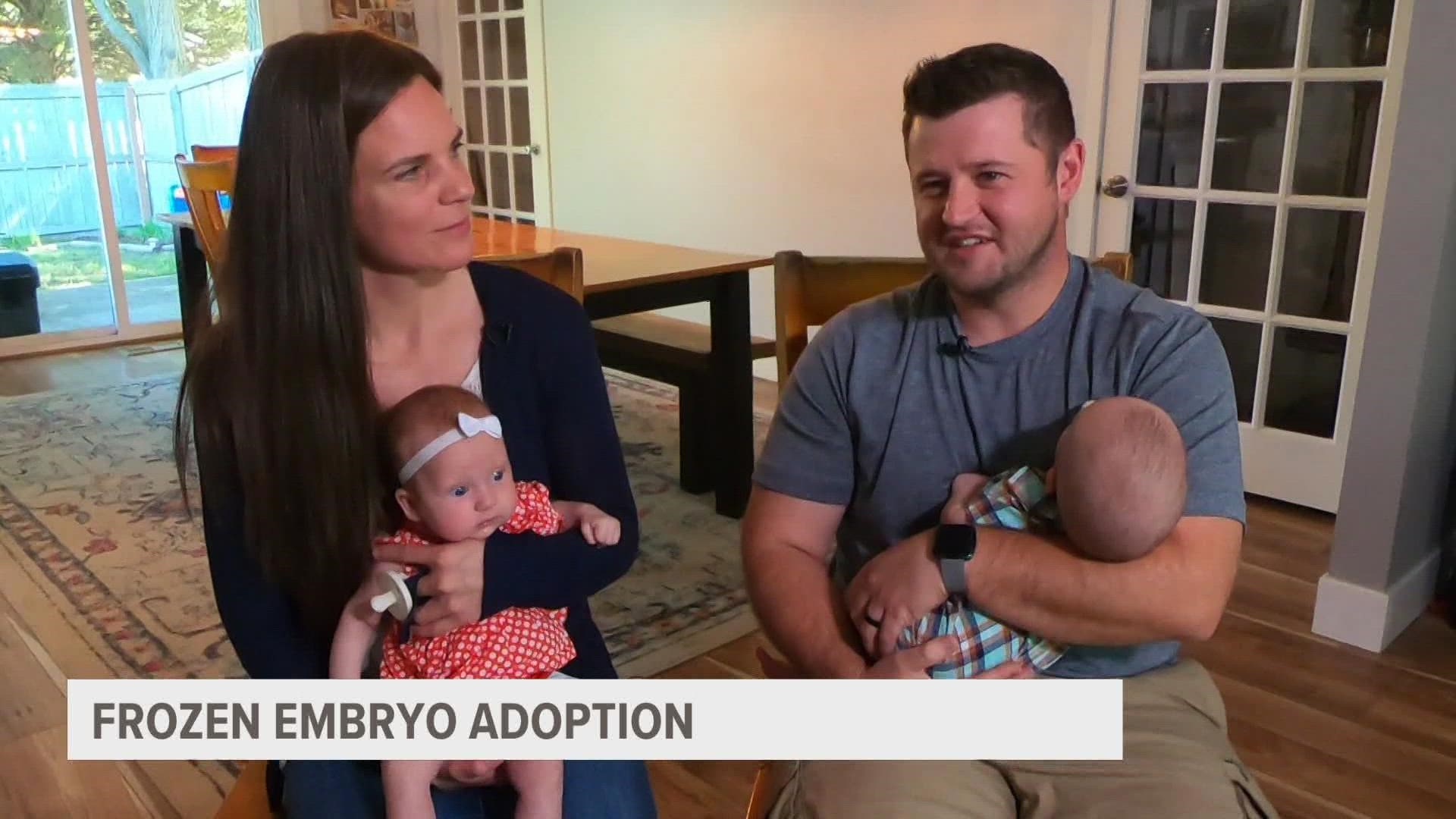GRAND RAPIDS, Mich. — Over the past 45 years, in vitro fertilization has given many couples trying to conceive the opportunity to have a family. But that process has also created another problem: millions of unwanted frozen embryos.
It's why the new trend of frozen embryo adoption is becoming more popular among couples who are willing to adopt.
Three-month-old Bennett and Abigail Milliman were delivered by mom Hannah on the same day, but they aren't twins, "They're just two babies that were born at the same time. And so it's kind of unique."


Unique, because Abigail and Bennett were born via frozen embryo adoption from two different sets of parents: "They're totally part of our family, but they also do have biological family out there somewhere. And so, I think that's something that we'll have to as they grow up walk them through that," says Hannah.
Despite having five of their own biological boys, Hannah Milliman and her husband Adam say they've always wanted to adopt. And when they learned there were more than a million frozen embryos in the U.S., Adam says they knew this was how they were going to do it.
"We just felt that we could be kind of part of the solution with so many of these children needing homes."


During in vitro fertilization, more than one embryo is created in order to offer parents the opportunity to try again if they don't succeed the first time.
Which then leaves the parents with a hard decision. What to do with the extra embryos?
Options include:
- Destroying them
- Donating them to medical research
- Keeping them frozen indefinitely (which can cost up to $1,000 a year)
- Abandoning them
"And sadly, abandonment is the option that a lot of couples choose because they literally cannot reach a decision as to what to do with the embryos," Dr. John Gordon, a physician with the National Embryo Donation Center.
He's an advocate for frozen embryo adoption.
"I mean, they're just waiting for somebody to come to adopt them."
People like the Millimans from Grand Haven, who chose their children from a frozen embryo database.
"We kind of just picked similar stature to ourselves because we're both short."
In addition to physical characteristics, Hannah and Adam also had another requirement: "We also did choose babies that were the single embryo left."
Abigail and Bennett are from different sets of parents. One was frozen for 4 years while the other was frozen for 14 years.


Dr. Gordon says the length of time an embryo is frozen does not impact the baby's health.
"The record holder embryo was frozen for 27 years, resulting in a healthy baby."
He wants parents of embryos to know it's never too late to donate no matter how long it's been.
"If you are donating embryos, and you feel that no one picks them because they've been frozen too long is not the case, or they haven't been genetically tested. It's not the case. Couples are wanting to adopt those embryos and we're certainly open to receiving those embryos."
The Millimans now believe their family is complete.
13 On Your Side Health Reporter Valerie Lego
Val has been reporting on health and medical stories in West Michigan for 16 years. She is an 18-time Emmy Award Winner. Her health reporting credentials include fellowships from the National Institutes of Health, Centers for Disease Control and Prevention (CDC), and the Association of Health Care Journalists
Contact me: vallego@13OnYourSide.com
Follow me Twitter @valerielego Facebook @valerielego Instagram @val_lego
►Make it easy to keep up to date with more stories like this. Download the 13 ON YOUR SIDE app now.
Have a news tip? Email news@13onyourside.com, visit our Facebook page or Twitter. Subscribe to our YouTube channel.

